#William Walter Wordsworth
Explore tagged Tumblr posts
Text

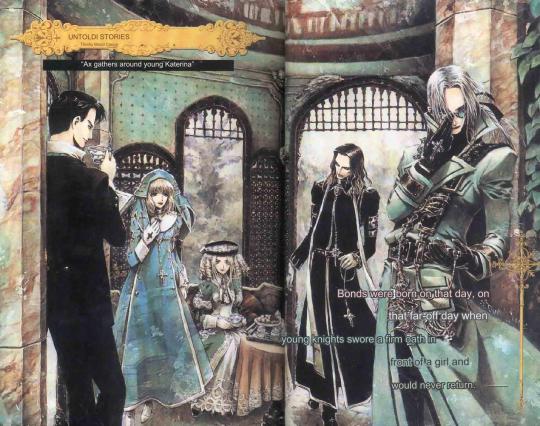
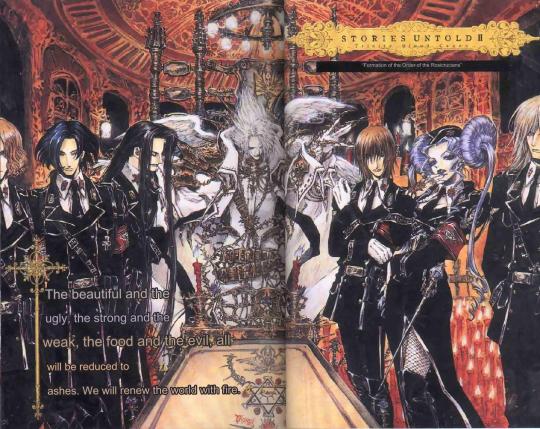
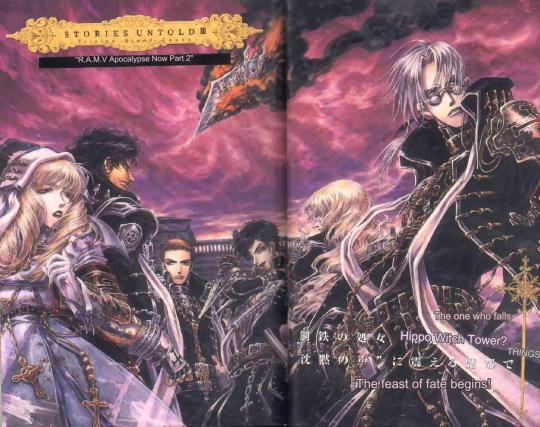
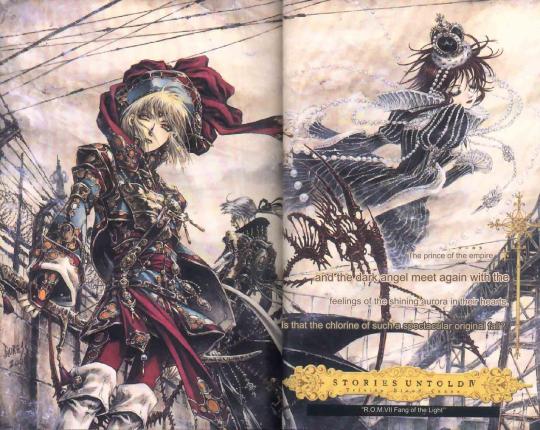
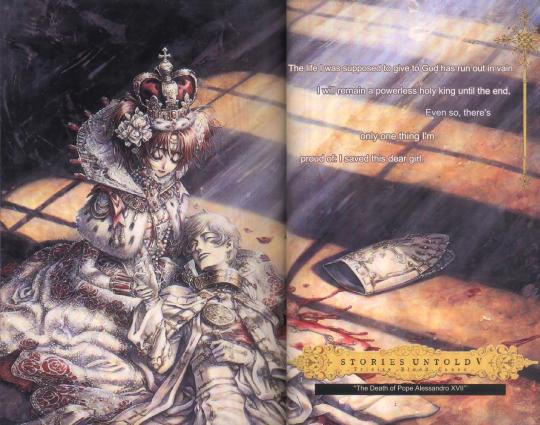

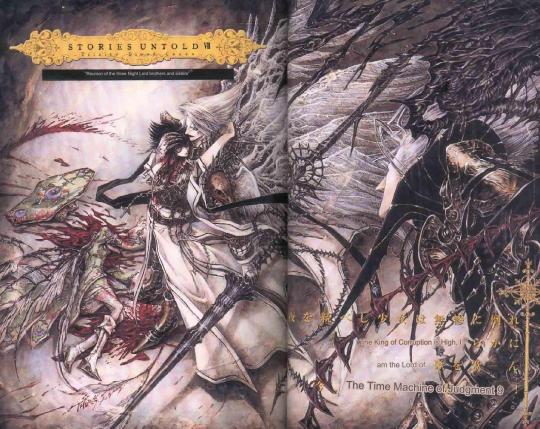
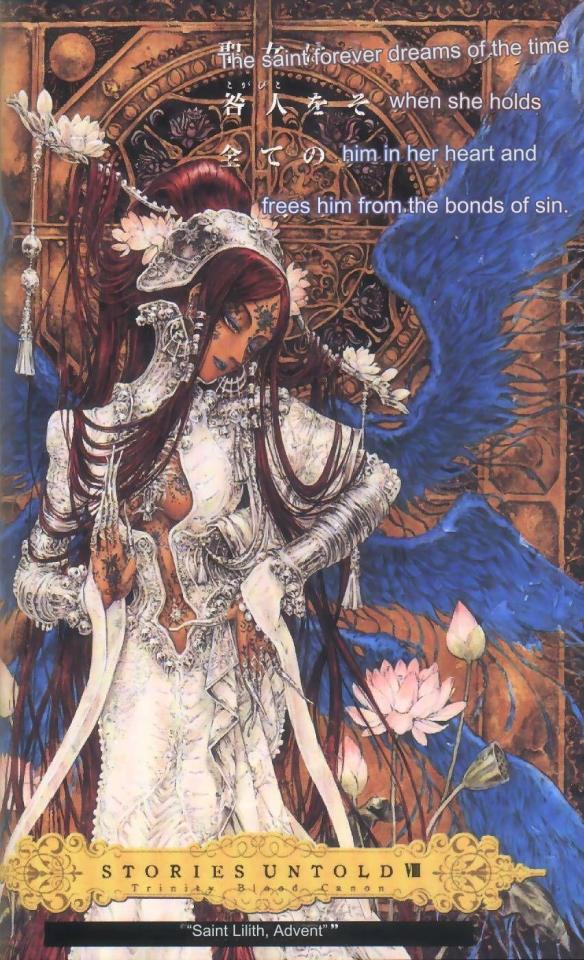
Paintings by Shibamoto from the Trinity Blood Stories Untold book, that came out I believe in 2005. A year after Yoshida's passing. I translated these the best I could. Honestly, I don't think the last painting with Lilith is talking about Abel, I feel its Cain. Would make since. once upon a time Cain was a good man, who was loved by all and did his best to help the human race and protect his family and Lilith alike. Even if he held just as much resentment towards humanity as Abel. He chose to handle it a better way. I wouldn't be surprised if she was secretly in love with him. I don't ship it though. It fits with Yoshida's writing style. Many beautiful women in love with Abel, he's in love with a woman who secretly hates his guts and who is secretly in love with a man who can't love anymore. All of these are inspired off of events that might have happened if the series had kept going. Not moments of scenes that were to happen. Seth and Lilith's wings aren't canon. Since there not in the books. Just Shibamoto's ideas of what they might have wanted them to look like.
#Trinity Blood#TrinityBlood#Abel Nightroad#Cain Kightlord#Seth Nightlord#Lilith Sahl#Catherina Sforza#Kate Scott#William Walter Wordsworth#Vaclav Havel#Hugue de Watteau#Leon Garcia de Asturias#Tres Iqus#Monica Argento#Esther Blanchett
67 notes
·
View notes
Text
#trinity blood#anime#manga#ion fortuna#radu barvon#suleyman#dietrich von Lohengrin#william walter wordsworth#vaclav havel#virgil walsh#Cain knighlord#isaak fernand von kampfer#terran#mathusalem#albion#krusnik
8 notes
·
View notes
Note
I totally forgot. Of course we know the birthday of Esther, since it was the key to identify her as the granddaughter of the queen. She was born on november 26, Year 645 (3050 AD)
Source: ROM V, Chapter 2 (Land of Refuge), Part VII, p. 220 [original japanese version] in manga: Volume 15, chapter 52 (Much Ado About Nothing)
Also by searching for manga picture I've just realized that all the online availible versions miss the last 8 pages of chapter 52 with very important content about the birth of Esther and the circumstances. I will do everythign to fix it.

and a dork keeps changing random (false) birthday informations iof the characters on the wikia pages. not fun.
Do you know if any of the characters have birthdays?
As I know the birthdays of the characters aren't stated anywhere in the official sources (maybe some exceptions, but I don't know of any), only the year of birth.I know, someone write birthdays in the wiki pages, but now i will go and delete them, because they are false informations.
#trinity blood#trinity blood wikia#trinity blood manga#trinity blood chapter 52#Esther Blanchett#William Walter Wordsworth#kiyo qjo#Londinium#Trnity blood fandom#Edward White
31 notes
·
View notes
Text
A list of all the books mentioned in Peter Doherty's journals (and in some interviews/lyrics, too)
Because I just made this list in answer to someone's question on a facebook group, I thought I may as well post it here.
-The Picture of Dorian Gray/The Ballad Of Reading Gaol/Salome/The Happy Prince/The Duchess of Padua, all by Oscar Wilde -The Thief's Journal/Our Lady Of The Flowers/Miracle Of The Rose, all by Jean Genet -A Diamond Guitar by Truman Capote -Mixed Essays by Matthew Arnold -Venus In Furs by Leopold Sacher-Masoch -The Ministry Of Fear by Graham Greene -Brighton Rock by Graham Green -A Season in Hell by Arthur Rimbaud -The Street Of Crocodiles (aka Cinnamon Shops) by Bruno Schulz -Opium: The Diary Of His Cure by Jean Cocteau -The Lost Weekend by Charles Jackson -Howl by Allen Ginsberg -Women In Love by DH Lawrence -The Tempest by William Shakespeare -Trilby by George du Maurier -The Vision Of Jean Genet by Richard Coe -"Literature And The Crisis" by Isaiah Berlin -Le Cid by Pierre Corneille -The Paris Peasant by Louis Aragon -Junky by William S Burroughs -Absolute Beginners by Colin MacInnes -Futz by Rochelle Owens -They Shoot Horses Don't They? by Horace McCoy -"An Inquiry On Love" by La revolution surrealiste magazine -Idea by Michael Drayton -"The Nymph's Reply to The Shepherd" by Sir Walter Raleigh -Hamlet by William Shakespeare -The Silver Shilling/The Old Church Bell/The Snail And The Rose Tree all by Hans Christian Andersen -120 Days Of Sodom by Marquis de Sade -Letters To A Young Poet by Rainer Maria Rilke -Poetics Of Space by Gaston Bachelard -In Favor Of The Sensitive Man and Other Essays by Anais Nin -La Batarde by Violette LeDuc -Lolita by Vladimir Nabokov -Intimate Journals by Charles Baudelaire -Juno And The Paycock by Sean O'Casey -England Is Mine by Michael Bracewell -"The Prelude" by William Wordsworth -Noise: The Political Economy of Music by Jacques Atalli -"Elm" by Sylvia Plath -"I am pleased with my sight..." by Rumi -She Stoops To Conquer by Oliver Goldsmith -Amphitryon by John Dryden -Oscar Wilde by Richard Ellman -The Song Of The South by James Rennell Rodd -In Her Praise by Robert Graves -"For That He Looked Not Upon Her" by George Gascoigne -"Order And Disorder" by Lucy Hutchinson -Man Crazy by Joyce Carol Oates -A Pictorial History Of Sex In The Movies by Jeremy Pascall and Clyde Jeavons -Anarchy State & Utopia by Robert Nozick -"Limbo" by Samuel Taylor Coleridge -Men In Love: Masculinity and Sexuality in the Eighteenth Century by George Haggerty
[arbitrary line break because tumble hates lists apparently]
-Crime And Punishment by Fyodor Dostoevsky -Innocent When You Dream: the Tom Waits Reader -"Identity Card" by Mahmoud Darwish -Ulysses by James Joyce -The Four Quartets poems by TS Eliot -Julius Caesar by William Shakespeare -A'Rebours/Against The Grain by Joris-Karl Huysmans -Prisoner Of Love by Jean Genet -Down And Out In Paris And London by George Orwell -The Man With The Golden Arm by Nelson Algren -Revolutionary Road by Richard Yates -"Epitaph To A Dog" by Lord Byron -Cocaine Nights by JG Ballard -"Not By Bread Alone" by James Terry White -Anecdotes Of The Late Samuel Johnson by Hester Thrale -"The Owl And The Pussycat" by Edward Lear -"Chevaux de bois" by Paul Verlaine -A Strong Song Tows Us: The Life of Basil Bunting by Richard Burton -Don Quixote by Miguel de Cervantes -The Divine Comedy by Dante Alighieri -The Jungle Book by Rudyard Kipling -The Man Who Would Be King by Rudyard Kipling -Ask The Dust by John Frante -On The Trans-Siberian Railways by Blaise Cendrars -The 39 Steps by John Buchan -The Overcoat by Nikolai Gogol -The Government Inspector by Nikolai Gogol -The Iliad by Homer -Heart Of Darkness by Joseph Conrad -The Volunteer by Shane O'Doherty -Twenty Love Poems and A Song Of Despair by Pablo Neruda -"May Banners" by Arthur Rimbaud -Literary Outlaw: The life and times of William S Burroughs by Ted Morgan -The Penguin Dorothy Parker -Smoke by William Faulkner -Hero And Leander by Christopher Marlowe -My Lady Nicotine by JM Barrie -All I Ever Wrote by Ronnie Barker -The Libertine by Stephen Jeffreys -On Murder Considered As One Of The Fine Arts by Thomas de Quincey -The Void Ratio by Shane Levene and Karolina Urbaniak -The Remains Of The Day by Kazuo Ishiguro -Dead Fingers Talk by William S Burroughs -The England's Dreaming Tapes by Jon Savage -London Underworld by Henry Mayhew
112 notes
·
View notes
Text

“The seasonal urge is strong in poets. Milton wrote chiefly in winter. Keats looked for spring to wake him up. Burns chose autumn. Longfellow liked the month of September. Shelley flourished in the hot months. Some poets, like Wordsworth, have gone outdoors to work. Others, like Auden, keep to the curtained room. Schiller needed the smell of rotten apples about him to make a poem. Tennyson and Walter de la Mare had to smoke. Auden drinks lots of tea, Spender coffee; Hart Crane drank alcohol. Pope, Byron, and William Morris were creative late at night. And so it goes.” ― Helen Bevington
33 notes
·
View notes
Text

SWORD DANCER - ソード ダンサー – ESPADA DANÇARINA
----------------- ⚠️ ESSA OBRA EM HIPÓTESE ALGUMA É DE MINHA AUTORIA. TRADUÇÃO REALIZADA DE FÃ PARA FÃS. NÃO REPUBLIQUE OU POSTE EM OUTRAS PLATAFORMAS SEM AUTORIZAÇÃO. SE CASO POSSÍVEL, DÊ SUPORTE AOS AUTORES E ARTISTAS COMPRANDO AS OBRAS ORIGINAIS. ⚠️

-----------------
SWORD DANCER
ソード ダンサー
ESPADA DANÇARINA
-----------------
PRÓLOGO
Para todas as portas envio a espada da matança.
Como um relâmpago, a espada que brilha é retirada da bainha para matar.
(Eszequiel 21:20) Versão Japonesa
"Quanto ao Tres-kun, que está em tratamento em Milão, não se observou nenhum problema na fase de exames. Hum! Também deu negativo para infecção viral nas partes biológicas... Ótimo. Nesse caso, ele deverá se recuperar em cerca de um mês."
Palácio das Espadas — Escritório do Chefe da Sede da Secretaria de Estado.
Jogando a pasta grossa sobre a mesa, o homem no sofá passou levemente a mão sobre seu rosto magro. Um sorriso confiante surgiu em seus lábios enquanto ele segurava um cachimbo Meerschaum apagado na boca.
"Quanto a mim, a universidade entrou em recesso de provas desde ontem. Deixei muitas tarefas para os estudantes, então posso voar para Milão até mesmo amanhã... O que acha, Sua Santidade?"
"Deixarei a recuperação do Padre Tres a seu cargo, Professor."
Com o cotovelo apoiado sobre a mesa de trabalho, a Cardeal Caterina Sforza, chefe do Ministério dos Assuntos Eclesiásticos, suspirou. Uma leve preocupação parecia formar-se, como que desenhada, entre suas finas sobrancelhas.
“Já temos uma falta de agentes executores séria. Espero que ele retorne ao campo o mais rápido possível.”
"Pode deixar comigo, Eminência. Vou terminar antes do início da universidade."
Se existisse algo nesse mundo como uma verdadeira personificação da autoconfiança, esse seria certamente o agente executor conhecido como 'Professor', Dr. William W. (Walter) Wordsworth. Ele sorriu de canto e, retirando um fósforo de sua batina, acendeu o cachimbo com gestos pomposos… Foi nesse momento, antes de o fósforo tocar o cachimbo, que o holograma de uma graciosa freira surgiu diante dele.
〈Boa noite, Dr. Wordsworth. Aqui é proibido fumar. Se quiser fumar, por favor, vá até o corredor ou a varanda. 〉
"Oh, que falta de educação minha... Ainda assim, você está tão linda como sempre, Irmã Kate."
〈Você é muito bom em elogios. Mas por favor, pare de fumar, sim?〉
A freira, olhando calmamente com seus olhos ligeiramente caídos, repreendeu o 'Professor' enquanto ele largava o cachimbo, e então voltou-se para sua senhora.
〈Acabei de retornar, Caterina-sama. Conforme instruído, uma unidade foi implantada em Amsterdã. Recebi o relatório de que as operações começarão durante esta noite. 〉
"Bom trabalho, Kate. Por favor, continue transmitindo os relatórios."
"Ora, quando menciona Amsterdã... ah, entendo, trata-se daquele incidente na antiga igreja Oude Kerk, não é?"
A voz levemente anasalada que interrompeu foi a do 'Professor'. Ele girava o dedo da mão direita perto da têmpora, com uma expressão de tédio, mordendo um cachimbo apagado.
"Assassinato e roubo de sangue de dez clérigos, incluindo o padre da paróquia... então, quem foi enviado?"
"A Aliança das Quatro Cidades, incluindo a cidade de Amsterdã, é uma região política extremamente delicada. Portanto, enviamos a pessoa com melhor conhecimento sobre o local."
"Então, o 'Sword Dancer'? ... Hum, será que é apropriado?"
〈 Algum problema, Professor?〉
O motivo de Kate ter perguntado foi porque o fino rosto do 'Professor' se tornou sombrio ligeiramente.
〈Ouvi dizer que ele nasceu em Bruges e conhece bem aquela região. Além disso, não parece haver nenhum problema em relação às suas capacidades, não é? 〉
"Exactly. No entanto, existem algumas circunstâncias a considerar."
Por um breve momento, o 'Professor' interrompeu as palavras como se estivesse refletindo, e virou-se para Caterina.
"Vossa Eminência deve estar ciente das circunstâncias que o levaram a se tornar um agente executor. Pessoalmente, não posso deixar de sentir que há um certo problema com a seleção."
Suspirando, Caterina se levantou.
'Não há o que fazer.'"
Ela se aproximou da janela, olhando para a cidade noturna abaixo. Nos últimos dias, um calor incomum para o inverno vinha persistindo, mas esta noite o frio parece ter voltado. Na rua silenciosa, nem mesmo a sombra de um cão vadio estava à vista.
"A mão de obra é insuficiente — esmagadoramente insuficiente. Portanto, caso ele perca o controle..."
Caterina sussurrou, como se estivesse falando para sua própria sombra refletida no vidro da janela.
"Será necessário poder para detê-lo, não é? Por isso, 'Professor', você poderia se apressar e ir o mais rápido possível para Milão?"
------------
Créditos da tradução:
Lutie (◕‿◕✿) ,
#trinity blood#rage against the moons#novel#abel nightroad#krusnik#crusnik#caterina sforza#tres iqus#sword dancer#professor#William W. Wordsworth#kate scott#gunslinger#iron maiden#tradução novel#tradução#pt br
9 notes
·
View notes
Text
From this day forward...
Mark Twain
Charles Dickens
Victor Hugo
William Shakespeare
Ernest Hemmingway
John Steinbeck
Herman Melville
Thomas Mallory
Ben Jonson
John Milton
Alfred Lord Tennison
Walter Scott
William Wordsworth
Edgar Allen Poe
H.R James
The Brothers Grimm
Charles Perrault
John Donne
Johann Wolfgang von Goethe
Friedrich Schiller
Christopher Marlow
Edmund Spencer
Miguel Cervantes
Homer
Ovid
Virgil
Anton Chekhov
Ian Fleming
Leo Tolstoy
J.M Barrie
Lewis Carrol
C.S Lewis
J.R.R Tolkien
Dante Alighieri
...ARE ALL OFFICALLY CANCELLED.
16 notes
·
View notes
Text
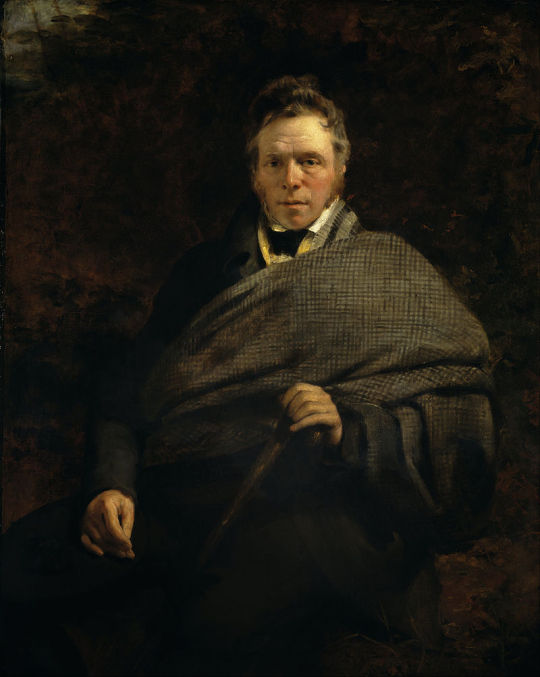
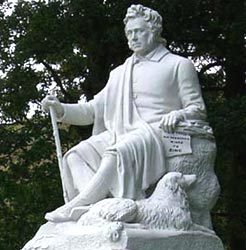
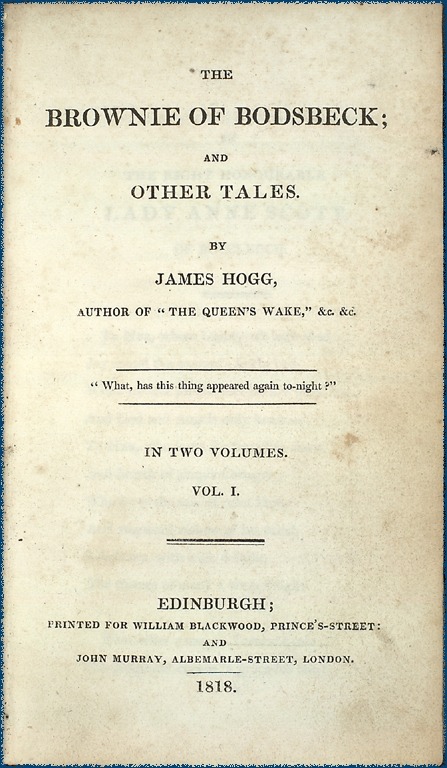
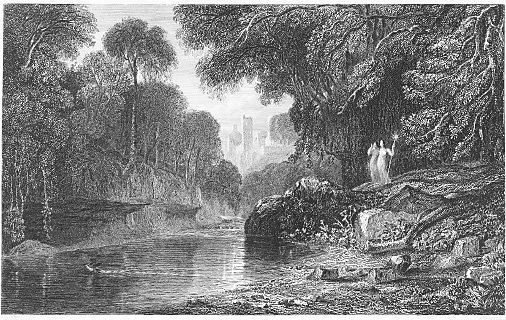
On November 21st 1835 James Hogg, the poet known as the Ettrick shepherd, died in Ettrick.
As his date of birth is unknown and only a gueestimate, and it being so close, I will forgo the December date and concentrate on todays post.
Like Burns and Scott, James Hogg was keenly interested in Song. He published a book of music known as The Forest Minstrel. Originally published in 1810, The Forest Minstrel is the complete collection of songs by Hogg, featuring his first compositions as a shepherd in Ettrick and those inspired by early contact with the literary culture of Edinburgh. Hogg also taught himself to play the fiddle, and rapidly began to make a name for himself as "Jamie the Poeter", a singer of traditional ballards and reciter of the rich folklore of the Scottish Borders, he could also draw, as seen in the pic which shows The River Esk in Roslin Glen, a body of water I know very well.
James Hogg was born on a farm near Ettrick Forest in Selkirk and baptized there onor around December 9th. The house that James Hogg was born in was at Ettrick Hall, a few miles from St Mary's Loch. Here a statue commemorates his birth. He lived here for the first seven years of his life. James Hogg had little education, and became a shepherd, living in poverty. His father was a shepherd and he too took on the title, hence his nickname, The Ettrick Shepherd. His employer, James Laidlaw of Blackhouse, seeing how hard he was working to improve himself, offered to help by making books available. Hogg used these to essentially teach himself to read and write. He had achieved this by the age of 14. In 1796 Robert Burns died, and Hogg, who had only just come to hear of him, was devastated by the loss. He struggled to produce poetry of his own, and Laidlaw introduced him to Sir Walter Scott, who asked him to help with a publication entitled The Minstrelsy of the Scottish Border. In 1801, Hogg visited Edinburgh for the first time.
His own collection, The Mountain Bard, was published in 1807 and became a best-seller, allowing him to buy a farm of his own. Having made his name, he started a literary magazine, The Spy, and his epic story-poem, The Queen's Wake (the setting being the return to Scotland of Queen Mary after her exile in France), was published in 1813 and was another big success. Yesterdays subject of a post, William Blackwood recruited him for the Edinburgh Magazine, and he was introduced to William Wordsworth and several other well-known literary figures. He was given a farm by the Duke of Buccleuch, and settled down there for the rest of his life.
Hogg had already made his reputation as a prose writer with a practical treatise on sheep's diseases; and in 1824 his novel, The Private Memoirs and Confessions of a Justified Sinner, was another major success. He became better known than his hero, Burns, had ever been.
Hogg's poetry and essays were not as widely read as in his contemporary era. However "Justified Sinner" remains important and is now seen as one of the major Scottish novels of its time, and absolutely crucial in terms of exploring one of the key themes of Scottish culture and identity: You might be surprised to know that the Scottish novelist Irvine Welsh cited Hogg, especially "Justified Sinner" as a major influence on his writing.
Hogg published mainly poetry until he was in his late forties. A particularly notable poem from this period is The Queen's wake, a book-length narrative in which the poets of Scotland assemble at Holyrood Palace for a bardic contest to celebrate the return of Mary Queen of Scots from France. A notable series of novels followed. Hogg's alternative version of James Macpherson's Ossian poem, Fingal. Many of Hogg's best later poems were collected in A Queer book.
Hogg's writings explore the supernatural with great power and sophistication, as in The Justified sinner, which is regarded by many as the greatest of all Scottish novels. Equally powerful is The Three perils of Woman, which explores the terrible aftermath of Culloden. The Three perils of Man is Hogg's version of a Medieval romance. Overflowing with vivacity, this novel is full of devilry and witchcraft. Much of the action takes place at Aikwood in the Ettrick valley, where Gibbie Jordan witnesses a wedding between a demon and a witch.
Aikwood Tower was until recently the home a Hogg exhibition that was open to the public during the tourist season. The Hogg exhibition has since moved as Aikwood is no longer open to the public.
Many of you will know by now I prefer shorter poems, I will leve a link below where you can find more of his work, but for now here is one of his shortest poems.
O, love, love, love! Love is like a dizziness; It winna let a puir body Gang about his biziness!
7 notes
·
View notes
Text
My former English professor is retiring and gave away a bunch of the books in her office. She's a gem. I giddily returned to campus just to sort through her collection. Super excited about the ones I brought home with me. I thought someone else might appreciate some of the books I found.
I've already began poring over the poetry collections, but what should I read first? Are there any that you guys have read that you highly recommend?
Books included in Photo 1:
● Sense and Sensibility by Jane Austen (Alta Edition includin Persuasion)
● Robert Burns by David Daiches
● Far From the Madding Crowd by Thomas Hardy
● Leigh Hunt's What is Poetry? by Albert S. Cook
● Love Letters Between a Nobleman and His Sister by Aphra Behn
● Virginia Woolf: A Biography by Quentin Bell
● Holy Madness: Romantics, Patriots, and Revolutionaries 1776-1871 by Adam Zamoyski
● Earnest Victorians by Robert A. Rosenbaum
● Lord Byron: Selected Letters and Journals by Lord Byron, Leslie A. Marchand (Editor)
Books Included in Photo 2:
● Orlando by Virginia Woolf
● Brave New World by Aldous Huxley
● The Portable Irish Reader, (The Viking portable library) by Diarmuid Russell
● The Last Days of Pompeii by Edward Bulwer-Lytton
● Becoming a Heroine by Rachel M. Brownstein
● To the Lighthouse Virginia Woolf
● East Lynne by Ellen Wood, writing as Mrs Henry Wood
● Poetry and Prose of Alexander Pope edited by Aubrey Williams
● In Memoriam; An Authoritative Text, Backgrounds and Sources, Criticism (Norton Critical Editions) by Alfred Tennyson
● Daughters and Fathers by Lynda E. Boose, Betty S. Flowers
Books Included in Photo 3:
● Jude the Obscure by Thomas Hardy
● A Sentimental Journey by Laurence Sterne
● Goblin Market and Other Poems by Christina Rossetti (Dover Thrift Editions)
● Sound the Deep Waters: Women's Romantic Poetry in the Victorian Age includes works by Christina Rossetti, Elizabeth Barrett Browning, George Eliot, Alice Meynell, and Edith Nesbit
● The Jane Austen Book Club by Karen Joy Fowler
● The Monsters: Mary Shelley and the Curse of Frankenstein by Thomas Hoobler and Dorothy Hoobler
● Wordsworth and the Poetry of Human Suffering by James H. Averill
● Victorian Ghost Stories: By Eminent Women Writers (Part of the The Virago Book Series) edited by Richard Dalby
● The Blind Assassin by Margaret Atwood
● Victorian Poetry and Poetics by Walter E. Houghton G. Robert


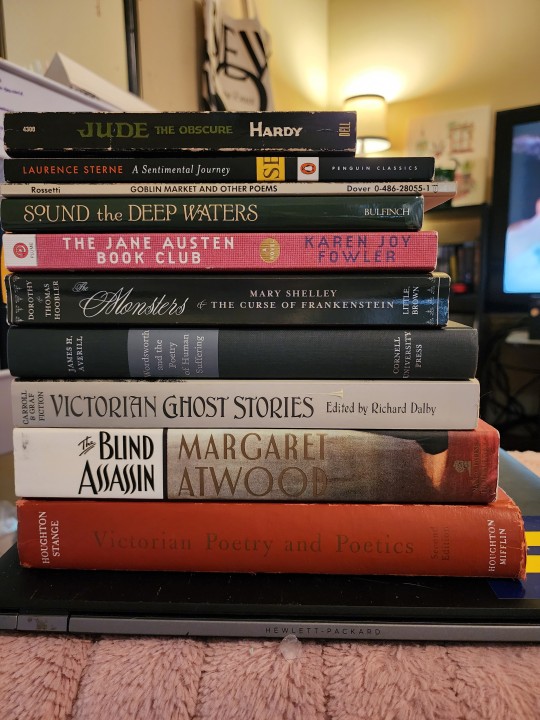
#bookish#bookworm#books#book haul#booklr#book tumblr#books and literature#booklover#booksbooksbooks#books & libraries#bookblr#book blog#women reading#reading#literature#english literature#literary fiction#literary#margaret atwood#jane austen#thomas hardy#virginia woolf#my library#from the library of nikki howard#fromthelibraryofnikkihoward
57 notes
·
View notes
Note
Based on the Jane Austen ask, which of the major characters (Artemisia, Ambrose, Felix, Hyder, Harry, Mariah, Amity, Jacob, etc.) are readers? And who would be their favourite authors and/or books?
Ooh lovely question! I had to have a proper think about this, and of course it's all hypothetical ahah. Artemisia and Ambrose are difficult because they'll be different people based on the choices you make in-game, but as mentioned, Arty totally fits the brief for an Austen reader of her period. Along those lines, I think she'd also be very interested by the novels of Frances Burney, and perhaps on her more adventurous days, something a little more out-there like Ann Radcliffe or Walter Scott (simply as their appeal was so wide - The Phantom of Castle Glenochrie was meant to parody this sort of literature!). Ambrose I can see very much enjoying Mackenzie's Man of Feeling, and sentimental/Romantic forerunners in the form of Laurence Sterne and Jean-Jacques Rousseau. Keats wasn't particularly well-read in his own time, but I think Ambrose would be a fan :)
Speaking of poetry, Mariah is singled out as not being a novel reader. I think first-generation Romantics along the lines of Charlotte Turner Smith, William Wordsworth and Samuel Taylor Coleridge would really appeal to her. I can see Felix, the firebrand that he is, having perhaps the most radical tastes of all - Byron and Shelley (again, the latter wasn't really a big hit in his time) for sure, but perhaps also more nakedly political writers such as John Thelwall and Thomas Paine. Hyder is far more establishment-leaning and would tend towards eighteenth-century Augustan works - Thomas Gray, Samuel Johnson, and perhaps Pope, but on his less vulgar days - I'm thinking Iliad rather than Dunciad. On the whole I think he'd be much more interested in some non-fiction such as Edward Gibbon or David Hume.
Harry strikes me as a very well-read individual - as mentioned, I think he wouldn't be opposed to Austen in the least, but certainly would get involved with metropolitan journalism and criticism. William Hazlitt, Charles Lamb, and The Spectator would also be very up his street. He also favours the abolition of slavery and so the likes of William Cowper and Thomas Clarkson might appeal to him. Amity, we know, is a big reader, and I think she would love almost any form of travel literature, especially of the more salacious sort. The Chickwell book she reads is based on Lady Mary Wortley Montagu's travels in the Ottoman Empire, and likewise other books regarding female travel and mobility (Germaine de Stael, Aphra Behn, or Eliza Haywood perhaps) would also entertain her. Jacob however is more practical than intellectual. Poetry with a rural/natural theme - perhaps Thompson's Seasons, or the works of labouring-class writers like Robbie Burns, John Clare, or Stephen Duck, might appeal to his sensibilities.
I almost wish you'd waited a little longer to send this, as in my opinion, some of the characters with the most interesting tastes are yet to come :)
7 notes
·
View notes
Text
Birthdays 4.7
Beer Birthdays
Charles Duff (1894)
Leo Van Munching Jr. (1926)
Alex Puchner (1961)
Five Favorite Birthdays
Jack Black; actor, singer (1969)
Francis Ford Coppola; film director (1939)
Billie Holiday; singer (1915)
Wayne Rogers; actor (1933)
William Wordsworth; English poet, writer (1770)
Famous Birthdays
Bill Bellamy; actor, comedian (1965)
Jerry Brown; politician (1938)
Irene Castle; dancer (1893)
Jackie Chan; actor, martial artist (1954)
Russell Crowe; actor (1964)
Tony Dorsett; Dallas Cowboys RB (1954)
Allan Dulles; diplomat (1893)
Daniel Ellsberg; "Pentagon Papers" (1931)
Percy Faith; bandleader (1908)
David Frost; television host (1939)
James Garner; actor (1928)
Freddie Hubbard; jazz trumpeter (1938)
Janis Ian; pop singer (1951)
Will Kellogg; cereal maker (1860)
David Low; English cartoonist (1891)
Jennifer Lynch; film director (1968)
John McGraw; New York Giants Mgr (1873)
John Oates; pop singer (1949)
Alan J. Pakula; film director (1928)
Mongo Santamaria; bandleader (1917)
Ravi Shankar; sitarist (1920)
Walter Winchell; journalist (1897)
Stan Winston; special effects artist (1946)
1 note
·
View note
Text
English Romanticism (1798-1832)
English Romanticism began in 1798 with the publication of Wordsworth and Coleridge’s The Lyrical Ballads and ended in 1832 with Walter Scott’s death. William Blake and Robert Burns also belong to this literary genre, though they lived before the Romantic period. Romanticism took place during a period of wars and revolutions, of considerable shifts and changes. It was a time of profound political…

View On WordPress
0 notes
Photo










21 notes
·
View notes
Photo

https://www.pixiv.net/en/artworks/513411
#trinity blood#toribura#william walter wordsworth#william wordsworth#professor wordsworth#oh he has too much fabric on - we need him undressed!#but this is totally one of my fav arts :)
15 notes
·
View notes
Text
#trinity blood#trinity blood shitpost#trinity blood vine#william walter wordsworth#isaak fernand von kampher#guderian
19 notes
·
View notes
Text
New Thores Art for Christmas and New Year
Thanks to https://trinityblood-vanitasnocarte.tumblr.com/ and https://monikavargas.tumblr.com/ for always notifying me about newness!

Posted by Thores Shibamoto

Posted by Thores Shibamoto

Posted by Thores Shibamoto

Posted by Thores Shibamoto

Posted by Thores Shibamoto
#trinity blood#Thores Shibamoto#Sunao Yoshida#vatican#New Human Empire#rco#rosencreutz orden#balthasar von neumann#Kaspar von Neumann#Melchior von Neumann#William Walter Wordsworth#Hugue de Watteau#Dietrich von Lohengrin#Seth Nightlord#mirka fortuna#Ion Fortuna#caterina sforza#Pope Alessandro
81 notes
·
View notes